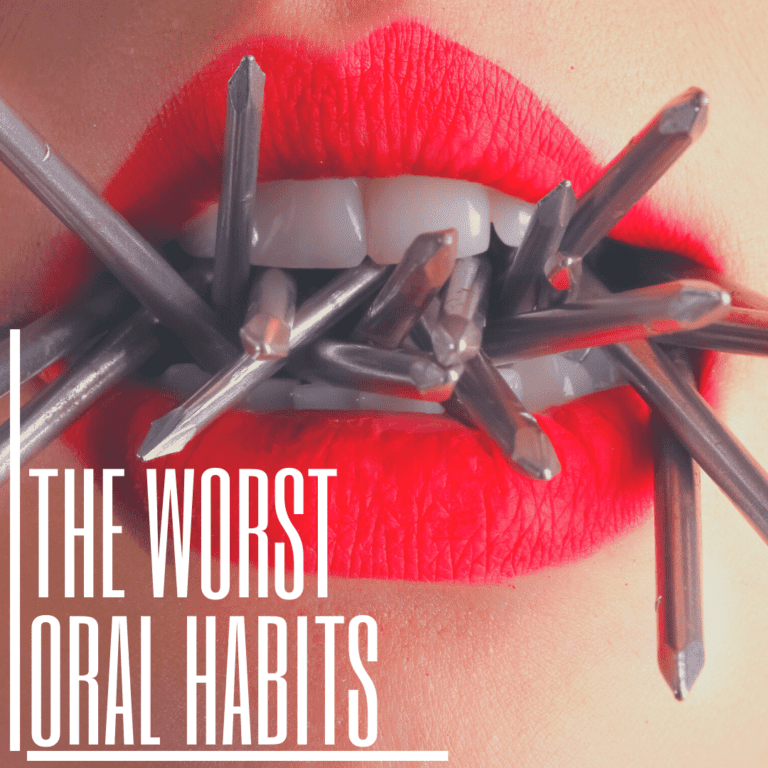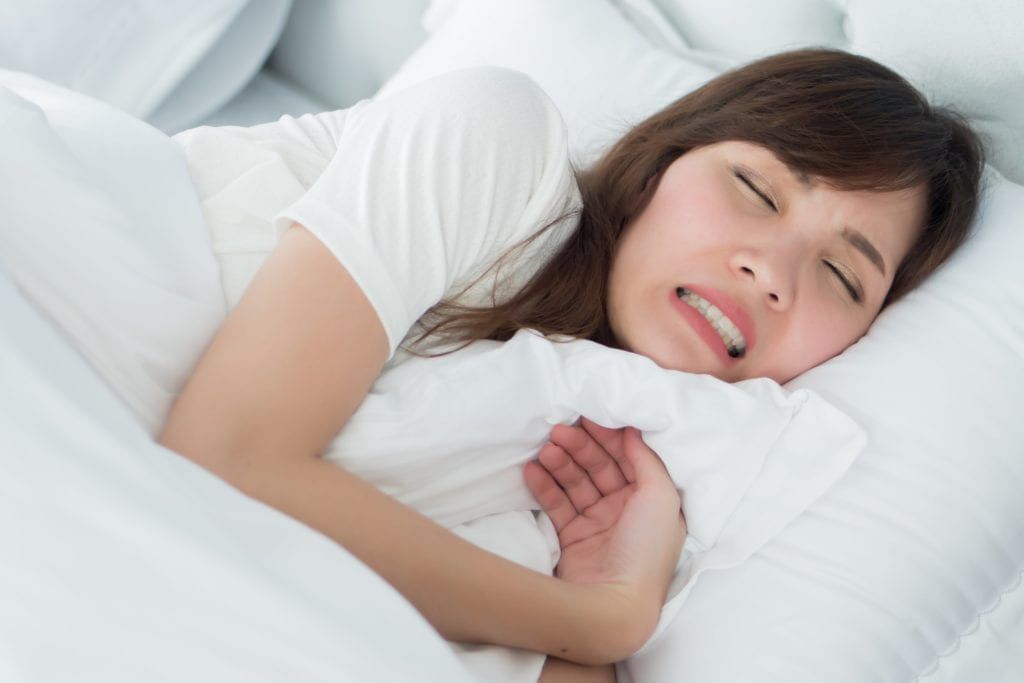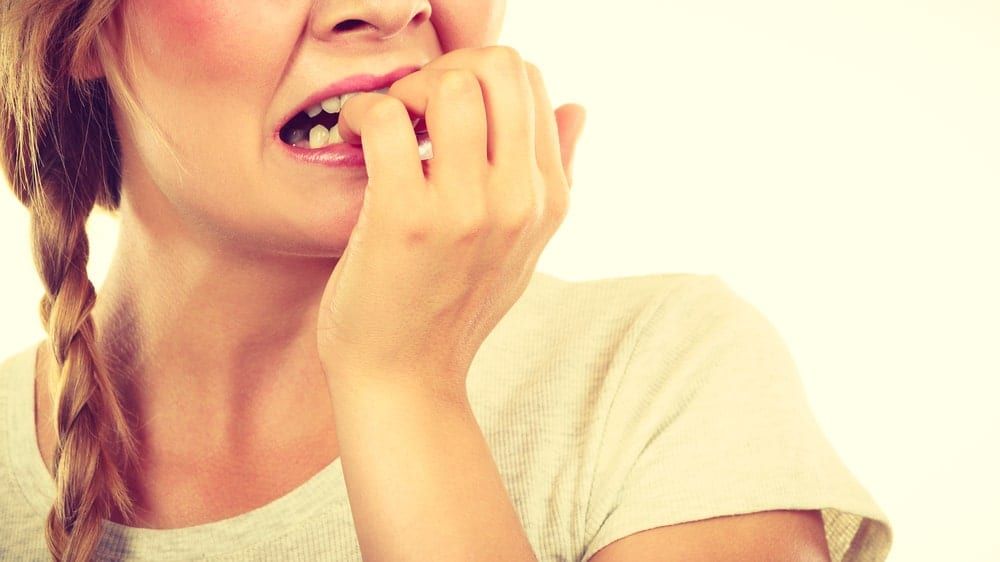The Worst Oral Habits

Good oral habits, like brushing twice a day, flossing daily, and having your teeth professionally cleaned every six months, are highly beneficial to your oral health. In fact, your dentist encourages you to continue to practice these habits. However, did you know that there are also oral habits that are not so great for your oral health? In fact, bad oral habits can increase your risk for tooth decay, gum disease, and dental emergencies.
In its simplest definition a bad oral habit is any behavior that poses a threat to your oral health. For example only brushing once a day or regularly not flossing can be considered bad oral habits. However, some bad oral habits are worse than others. In fact, here are some of the worst oral habits:
Teeth Grinding or Clenching

Teeth grinding or clenching, more formally known as bruxism, are extremely damaging oral habits. In fact, habitual grinding or clenching has been found to cause damage to both the teeth and the jaw. Bruxism starts by eroding the enamel on your teeth and can eventually result in prematurely worn out, chipped, or fractured teeth. The motions associated with grinding and clenching also place a large amount of strain on the jaw joint and have been found to contribute to temporomandibular joint disorder (TMD). Unfortunately, most bruxers are unaware of this behavior because it usually occurs at night while sleeping. Therefore, to combat this habit your dentist will have you wear a nightguard.
Chewing Ice
At the molecular level, ice cubes and tooth enamel are composed of a crystalline structure. This means that when they are pushed against one another, one of these structures will break. While your teeth are generally expected to be stronger than ice, teeth that have been weakened or affected by decay can possibly chip or crack while chewing ice. Not only that, but chewing ice actually weakens your teeth, which means the chances of breaking a tooth go up every time you chew ice.
Using Teeth as Tools
Many people find themselves using their teeth to hold things when their hands are full, tear open packages, or even open bottles. These behaviors are extremely dangerous and can easily lead to a dental emergency. Depending on what tool you substitute your teeth for, it can cause teeth to become broken, loose, or even to fall out.
Nail Biting

In addition to being damaging to your nails, nail biting is also damaging to your teeth and jaw. Biting your nails can easily lead to chipped teeth. Furthermore, people who regularly bite their nails place their jaw in an abnormal position for extended periods of time. This strains the jaw joint and can be a contributing factor to TMD.
Brushing Too Hard
It is important to use the right amount of pressure when brushing your teeth. Applying more pressure will not make your teeth any cleaner, but it can cause its own set of problems. For starters, brushing too hard causes your enamel to wear down, which can result in tooth sensitivity and an increased risk of tooth decay. Not only that, but your gum tissue is also affected by brushing too hard. This results in gum irritation that can result in gum recession.
As you can see, these oral habits are some of the worst habits for your oral health. Regularly practicing these habits can unfortunately increase your risk of tooth decay, gum disease, and dental emergencies all while decreasing your overall oral health. Therefore, if you practice any of these habits, it is strongly encouraged that you work on stopping.

Dr. Scott T. Simpson graduated from the University of Florida College of Dentistry while participating in the Health Profession Scholarship Program through the United States Air Force. Following graduation, Dr. Simpson served three memorable years in the USAF at Malmstrom Air Force Base in Great Falls, Montana. He then practiced for nine years in the Orlando area before moving to the beautiful city of Tigard and starting Appletree Dentistry.



